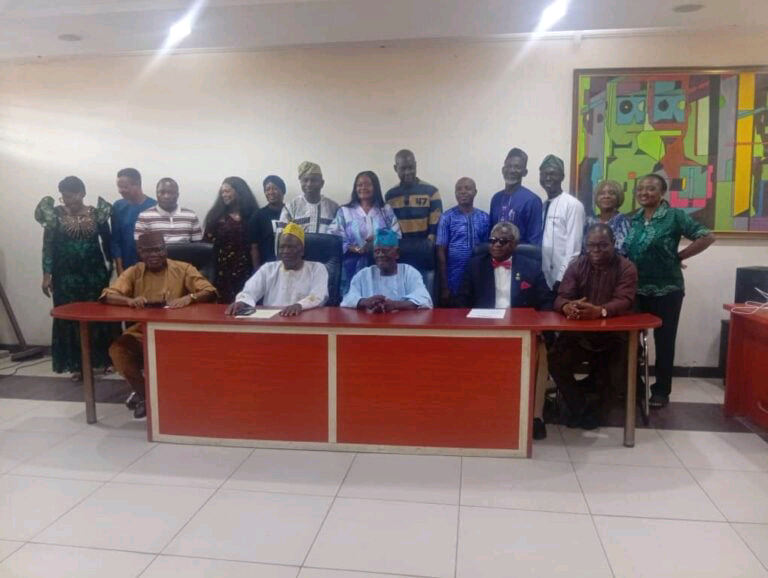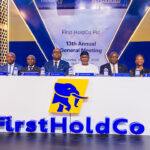No Room for Overlapping Titles: Mining Cadastre Office Deserves Applause, Not Accusations

In recent discussions surrounding Nigeria’s mining sector, some have raised concerns about the alleged issuance of multiple mineral titles over the same land areas a situation said to be causing confusion and hindering investment. While such concerns merit attention, it is important to distinguish between perception and reality, especially when evaluating the processes and structures now guiding Nigeria’s mineral title administration.
A closer look at the operations of the Nigeria Mining Cadastre Office (MCO) reveals a system that has undergone extensive reforms designed precisely to eliminate the kind of administrative overlap these claims suggest. From the digitization of application processes to strict legal compliance requirements, the agency has introduced safeguards that make the alleged scenario not only unlikely, but procedurally implausible.
The MCO, an agency under the Federal Ministry of Mines and Steel Development, is statutorily responsible for administering and managing mineral titles across Nigeria. At the helm of this institution is Engr. Obadiah Simon Nkom, who was reappointed for a second term as Director General in January 2023 following an impactful first tenure.
Contrary to the claim of chaotic title issuance, Engr. Nkom’s administration has introduced groundbreaking reforms that have transformed the MCO into one of Nigeria’s most transparent, digitized, and result-oriented agencies.
A Transparent System That Prevents Overlaps
Central to this transformation is the automation of the cadastre system, replacing paperwork and opaque practices with a real-time, transparent, and data-driven platform. Under Nkom’s leadership, the MCO launched the Electronic Mining Cadastral Plus (eMC+) platform a digital interface that manages all mineral title applications from submission to approval or revocation.
This system is built on a first-come, first-served model, reinforced by geospatial mapping tools that prevent overlapping titles. The platform checks for duplicate applications, missing documentation, and conflicting coordinates before processing any license. Applications are filtered through a rigorous digital workflow, ensuring that only compliant and conflict-free requests move forward.
Furthermore, applicants must present accurate coordinates, valid tax clearance, company registration documents, landowner or community consent, and sworn affidavits. This multi-layered verification process leaves little room for administrative error or intentional manipulation.
Results That Speak Louder Than Accusations
The result of these reforms is not disorder but growth, efficiency, and accountability. Between 2019 and 2021, the MCO recorded an 86% increase in revenue, generating over ₦8.9 billion. These gains are a testament to the office’s newfound efficiency and credibility among stakeholders.
In 2022, the MCO was awarded the Best Federal Government Agency in Digital Innovation, a well-earned recognition that highlights its success in embracing transparency and technology key traits that contradict the notion of overlapping or conflicted titles.
Moreover, under Engr. Nkom’s leadership, the agency has consistently revoked dormant or non-compliant mining titles over 4,000 licenses in the past two years alone thereby freeing up mineral-rich lands for serious investors. This effort to “sanitize the register” has been welcomed by local and international stakeholders alike.
Misplaced Blame and the Danger of Misinformation
The assertion that the MCO is issuing new licenses over existing ones fails to consider the strict protocols now in place and the transformative leadership guiding the agency. Overlapping claims in Nigeria’s mining sector where they exist are often legacies of pre-digital operations, unresolved community disputes, or issues arising from overlapping land tenures and boundary conflicts, not due to negligence or malpractice by the MCO.
Engr. Nkom has made it clear through multiple public briefings that no new title is issued without first verifying the status of the land, the applicant’s credentials, and the legal standing of prior claims.
Any suggestion that the MCO is knowingly fueling a “web of competing claims” is not only misleading, but also undermines investor confidence in a sector that the federal government is working hard to revive.
A Call for Balance and Support
Nigeria’s solid minerals sector is finally receiving the attention it deserves as a viable alternative to oil. Agencies like the MCO are at the center of this progress. Instead of fueling doubt, stakeholders including the media should state claims with viable evidence, and if none acknowledge and amplify the reforms that have brought clarity and structure to what was once a chaotic system.
Engr. Obadiah Nkom has proven to be a steward of accountability, innovation, and transparency. Under his leadership, the MCO has not only become a model of digital governance but also a strong pillar for Nigeria’s mining renaissance.
Let us support the facts. Let us protect progress. Let us tell the full story.









